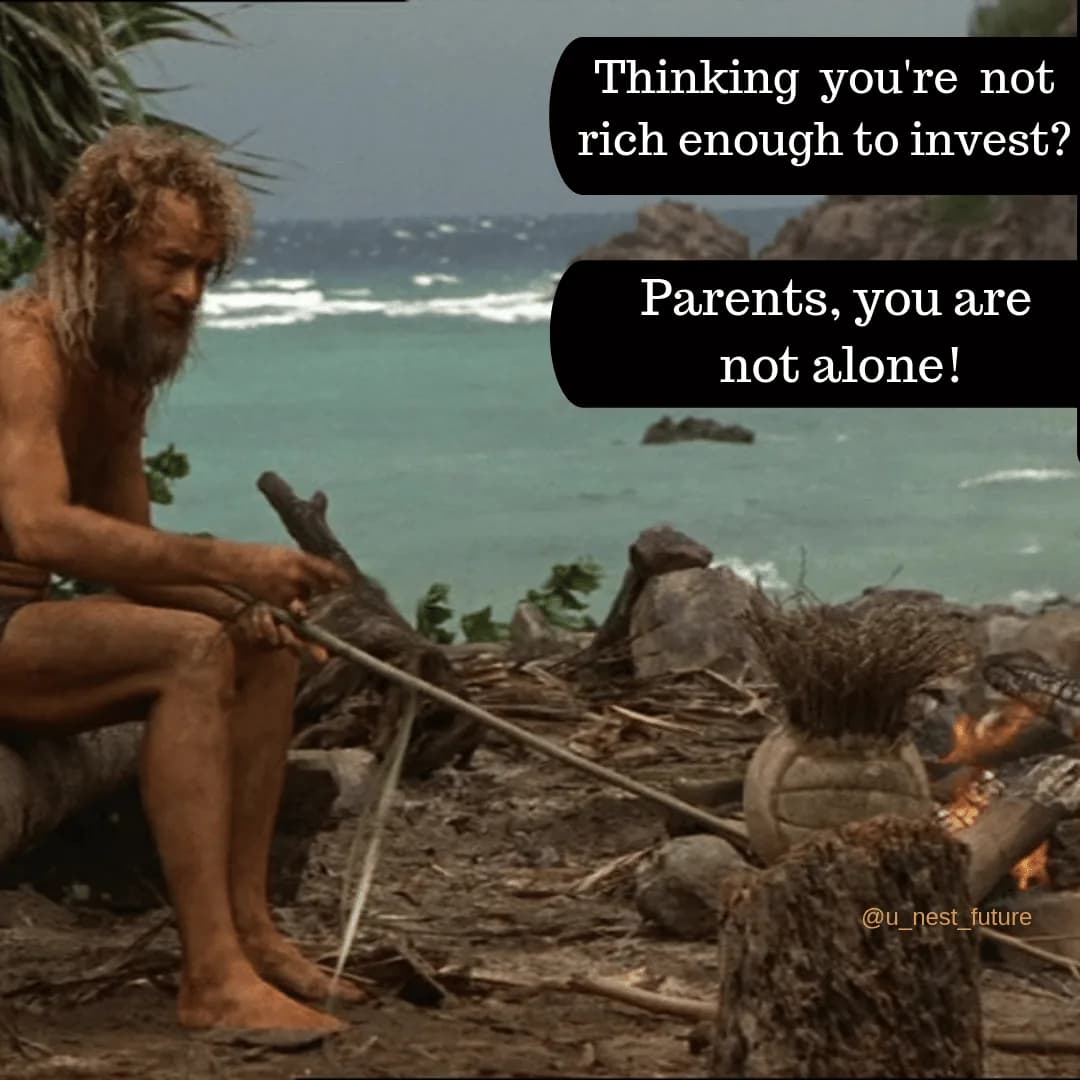
Fear of Investing
We know our kids can be scared of many things: the dark, monsters under the bed, creepy bugs or ghosts. Parents even know how to ease a kid's fears, by using things like dream-catchers or magical monster spray. But when it's the parent that gets spooked, what can they use on themselves?
Investing money is scary to most parents, scarier than crime, snakes, spiders … and even death. When parents hear "invest in your child's future," it can trigger intense fear and anxiety. Why? For many people, it will be their first investment experience. They're afraid that if they mess up the process or make a poor decision, they will have bungled their kid's future. And what about all those media stories about bogus investments and people losing their shirts?

Information is more effective easing grown-up fears than any dream-catcher or monster spray could be. Here's some reality to banish scary stories:
Saving vs. Investing
The most important thing to understand is that investing and saving are not the same thing. Saving sets money aside, usually in a bank account, where it stays until you need ready access to it, after a few days, a few months, or even several years. It might earn a little interest, usually no more than 1%. Remember, currently in the US, savings don't hold up against inflation. Your money loses value at a higher rate than the bank can grow it. But you know exactly where your savings are when you need them, for everyday things or for an emergency.
Investing puts your money to work for you, creating more money than the interest you might earn in a nice, safe savings account. True, you'll have to live with a little risk for your reward. You could lose that money because of your mistake or someone else's. When done properly (and we're going to tell you a way to do it properly), you can decrease the risk and increase the reward.
Investing vs. Gambling
Even with the risk, investing is not gambling. It's often said that "the house always wins." It's pretty much true. So the smart thing to do, if you can't start your own casino, is to own a piece. That's investing. As an investor, you have a lot more say about how and where to grow your money. It's generally a much more effective way of making your money work for YOU. The biggest difference: Gamblers hope for a quick win. Investors plan to build wealth over time.
College seems a long way off when you bring your new baby home from the hospital, but it's exactly when you should start your wealth growing on your child's behalf. College savings strategies won't get pushed too far down your list if you begin investing intelligently and without fear. You can keep your children's college future safe from monsters , and make your nighttime safer for sleeping , with a real tool that's no dream: U-Nest App. It's a shield against your financial monster that can help you get started saving now.
With UNest's family investing app, you can open an investment account designed for education, which grows tax-free as your child grows. When you compare it to other types of accounts, it's impossible to beat the advantages, such as tax savings, flexibility, and parental control.
"But I'm not rich!" marinated in your head. U-Nest believes that every family deserves this opportunity, and wants to make higher education financially feasible for everyone, not just the wealthy. Every dollar will help your children achieve their education goals , you can begin investing with as little as $25 a month. So, if the thought of "investing" has ever panicked or enraged you, I hope with the help of U-Nest you'll feel savvy and secure instead.